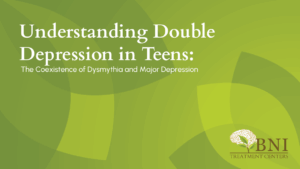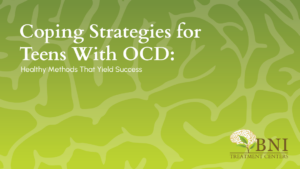It has never been more challenging to raise teenagers. Teens are exposed to things that their parents may try valiantly to protect them from, but often feel hamstrung in their efforts. The proliferation of social media no only introduces them to unhealthy or risky online “challenges,” but also promote the use of drugs and alcohol. For teens who are more vulnerable to the power of suggestion or strive to feel they fit in and belong, the tug of peer pressure remains a powerful force in their lives.
While many teens may do some minor experimentation with alcohol, marijuana, and/or use disorder Adderall among the most common, manage to cycle through this with no serious problems, other teens may be predisposed to addiction, through genetics, troubling life events, a mental health disorder, or personality traits. These kids may find themselves using a substance as a means of self-medicating the effects of significant emotional pain or symptoms of anxiety or depression. For this group of teens, substance use disorder evolved from need rather than simply feeling pressured by peers at a party.
Addiction recovery for teens will only be successful if the underlying emotional issues or co-occurring mental health disorder is identified and treated. This is best accomplished through the professional services of a teen-specific dual diagnosis treatment program. The teen-centric focus of these types of programs provides the appropriate mix of conventional psychotherapy and experiential activities that speak specifically to teens.
Teen Drug and Alcohol Use Disorder and the Brain
Substances of use disorder have a very different effect on the teen brain as compared to adults. Teenagers are still experiencing changes in the executive brain functions, which are those that control decision-making and impulse control among other important functions. This brain region is still immature and will not be fully developed until the mid-20s. This means that teens are more prone to making impulsive decisions or to engage in high-risk behaviors than adults with fully developed executive functioning.
The actual effects of the alcohol and drugs are enhanced in teens. Teens typically are smaller in stature and have a lower body mass index, which equates to experiencing more potent highs when they use drugs or alcohol. The rush of dopamine that results begins to wire their brain’s reward pathways as a precursor that could prompt them to repeat the drug or alcohol use. Over time, the body develops a higher tolerance to the substance, which can lead to addiction or dependence.
What Are Signs of Substance Use Disorder?
There are certain signs that will tip parents or teachers off that a teenager is developing a problem with drugs or alcohol. It is important to know these warning signs and not to be in a place of denial if you witness them in the teen. The sooner the teen receives treatment for the problem, the better the recovery outcome. These warning signs might include:
- Declining academic performance
- Loss of interest in extracurricular activities normally enjoyed
- Withdrawing socially
- Isolating behaviors, sneaky behaviors
- Physical signs of drug or alcohol use, such as constricted pupils, weight loss, glassy eyes, perpetual runny nose, smell of marijuana or alcohol, loss of interest in physical appearance and hygiene
- Stealing prescription drugs from family members
- Engaging in risky behaviors, such as driving under the influence
- Trouble with the law
- Truancy
- Hanging out with a different crowd
- Stealing money from family members
- Mood swings
- Change in sleep habits
- Change in eating habits
- Irritability
- Signs of depression
- Signs of anxiety
- Withdrawal symptoms
Teens who begin using drugs and alcohol have a much higher risk of developing adult addictions. This is why it is so important for parents to be proactive if substance use disorder is suspected.
Addiction Recovery for Teens With a Co-Occurring Mental Health Disorder
When a teen has both a substance use disorder and a mental health disorder, it is important that they be treated through a specialized dual diagnosis program. It does no good to enroll a teen into an outpatient rehab program for treatment of an addiction without addressing the mental health component. Especially if the mental health disorder was the primary disorder, it is essential that the teen be treated for this simultaneously. Otherwise, no matter how good the outpatient rehab program is for treating addiction, the teen will likely return to using the substance as ongoing mental health challenges persist.
A residential teen dual diagnosis program provides a more intensive approach to helping a teen overcome the addiction while getting treatment for the mental health disorder. A medical detox is the first step for the teen if he or she has become addicted to the substance. Medical detox provides a safe, supportive environment for the teen to clear their system of the substance before transitioning to treatment.
Dual diagnosis treatment will involve a comprehensive approach that includes:
- One-on-one psychotherapy, also referred to as talk therapy
- Group therapy with other teens, facilitated by a therapist
- Family group sessions
- Psychiatric services for treating the mental health disorder
- Recreational therapies, such as surf therapy
- Holistic therapies, such as yoga and mindfulness training
Addiction therapy for teens will be followed up with recovery support services, including possibly a recovery high school environment, peer recovery support groups, and ongoing outpatient therapy.
BNI Treatment Centers Provides Medical Detox and Addiction Recovery Services
BNI Treatment Centers is a residential mental health and dual diagnosis program for treating teens aged 12-17. There are different levels of substance use disorder, from mild or emerging, to moderate, to severe. The specific treatment plan will depend on the teen’s substance use history and a co-occurring mental health disorder. For some teens with moderate to severe addiction issues, a medical detoxification will be the first step in recovery, which allows the body to remove the related toxins or chemicals and then stabilize.
Addiction treatment consists of a whole person, or bio-psycho-social approach that combines evidence-based approaches that also address the coexisting mental health disorder. These include cognitive behavioral therapy (CBT), solutions-focused therapy, family-focused therapy, dialectical behavior therapy (DBT), along with holistic and experiential therapies. The teen is more engaged in their recovery when treatment is relevant to them, so at BNI Treatment, a teen treatment center, we utilize yoga, mindfulness meditation, surf therapy, equine therapy, art, music, and drama therapy. For more detail about the program, please reach out to BNI Treatment Centers at (888) 522-1504.



